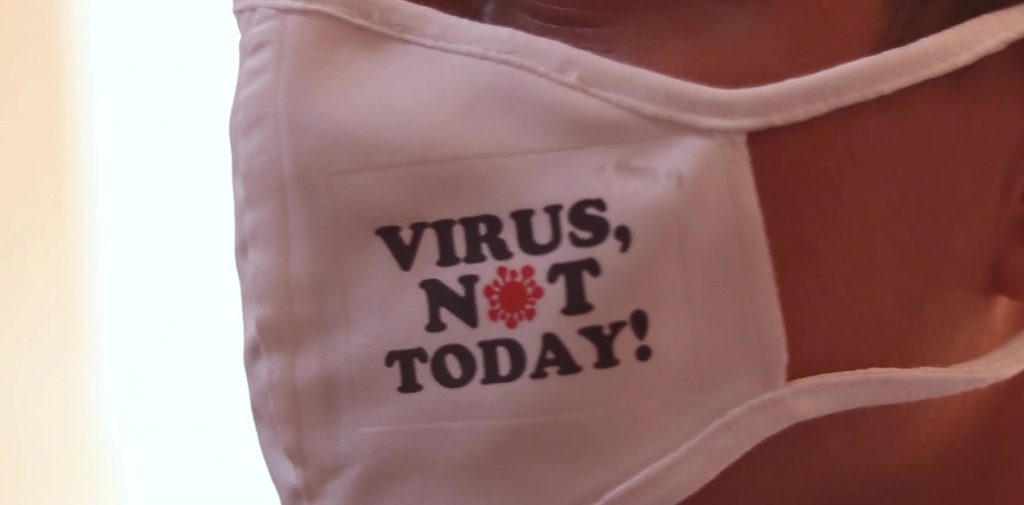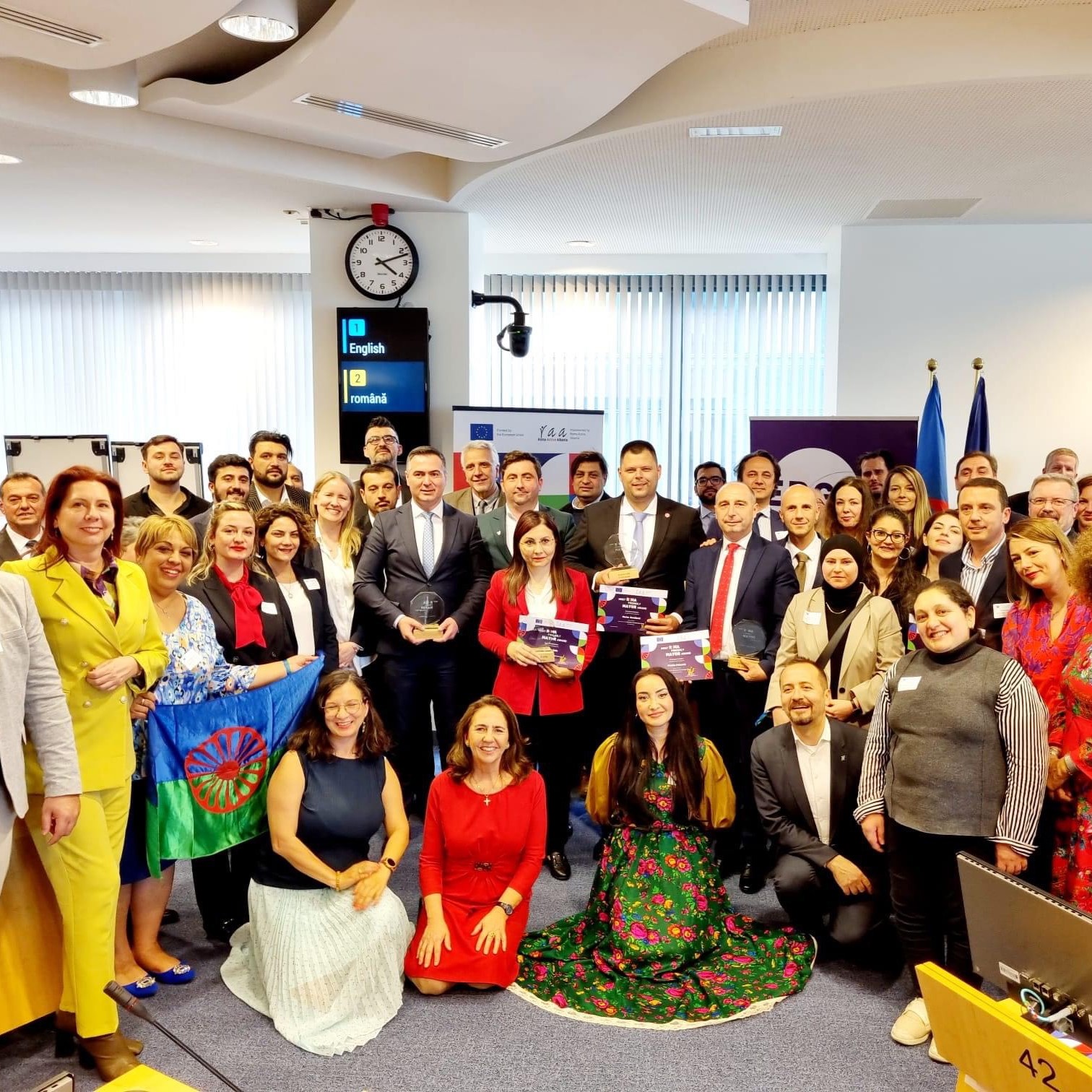The COVID-19 pandemic and its economic and social impact have disrupted nearly every aspect of our lives. However, people of different ages experience its effects in different ways. For young people and especially for vulnerable youth the COVID-19 crisis poses considerable risks in the fields of education, employment and mental health.
Self-isolation, socialising at a distance and the inability to continue some of our daily activities are a consequence of the COVID-19 crisis and this has undoubtedly affected the psychological state of young people. To raise awareness about these challenges, the Youth Association ‘Kreator’ from Kumanovo has published the e-book ‘Quarantine Stories’ as part of its involvement in the Regional Programme on Local Democracy in the Western Balkans (ReLOaD).
The book contains personal testimonies collected through interviews conducted with 20 young people from Kumanovo on the topic of the pandemic. The book was produced as part of the project ‘Socialisation in Isolation’. The main idea is for the young people to understand that they are not alone and that all of them are looking for ways to cope with the situation in their own way.
Considering the needs and urges that are typical for this young age, the challenges brought by the pandemic have become increasingly serious. The forced distancing from their friends and often from family members has caused intense emotions of fear, anxiety, sadness and worry.
Gabriela Boskov, a psychologist engaged in the ‘Socialisation in Isolation’ project, said that young people are at a stage in their life when they need to be rebellious and that it is biologically determined for them to oppose the rules and the demands placed on them, because this is the only way they can move up the ladder to adulthood.
“This is the part of their lives in which they step out of the boundaries and this situation puts them back in a box. So, I think that they experience this even more dramatically than us adults. Before the pandemic, they kept saying ‘I don’t want to go to school’, ‘it is too early’, ‘it is stupid’, ‘we don’t like this’, ‘we don’t like that’ but now I frequently hear ‘we miss school’, ‘why aren’t they asking us what we want’, ‘we don’t want to study online because we miss hanging out with friends’.”

The testimonies written in ‘Quarantine Stories’ show that young people in Kumanovo experienced various emotional states during the quarantine period. They were worried about their parents and grandparents and overwhelmed by the news on television and on social networks. Some of them have chronic conditions and belong to the most vulnerable groups. The young people coming from the socially vulnerable categories particularly suffered these effects. Many parents had difficulties with their jobs and some of them even lost their employment. All of this has had a strong impact on young people.
Nevertheless, ‘Quarantine Stories’ tells us that these young people found ways to cope with the ‘new normal’. Not only have they adapted, but the pandemic has also shown them that they have the skills to understand and manage their emotions and that they have expressed compassion and empathy toward others in their community.
D.Z., an 18-year old student from Kumanovo and an activist at the Kumanovo Red Cross, said in his testimony that it made him truly sad to see how much the virus affected families from socially vulnerable categories.
“Every day I was out helping many families by distributing humanitarian assistance, food packages and hygiene products. There were many donations, but still not enough. I was proud during those moments because I knew that at least I was helping a little where it was most needed.”
Others said that they had also found some positive aspects of this situation. Most of them were happy to spend more time with their families and had started to understand how precious freedom is and to appreciate small everyday moments.
E.T., a 17-year old student, said, “I have learned to love life the way it is and to be happy with the small things that each day brings … I have learned to live.”
The project ‘Socialisation in Isolation’ aimed to help young people and secondary school pupils in Kumanovo overcome the problems, challenges and consequences of the pandemic.
Katerina Dimovska from the association ‘Kreator’ in Kumanovo said, “Hundreds of secondary school pupils have been involved in one-day local workshops that consisted of two parts. The first part included talking with a psychologist about how they can help themselves during a pandemic and how to overcome the negative impacts. The second part of the workshops is creative, so we had Yoga workshops, Zumba workshops, painting on a canvas and creative expression through art.”
This was just one of the 43 projects successfully implemented in North Macedonia as a part of the ReLOaD programme. From the beginning of 2017 up until the end of 2020, more than 5,000 young people from North Macedonia participated in different projects aimed at promoting volunteerism and youth activism, as well as equal chances in education and social inclusion.
The European Union funded, and UNDP implemented ReLOaD programme is a four-year regional initiative.

Young volunteers from Gostivar have also found creative ways to manage “a new normal” and the challenges caused by the COVID-19 pandemic. The quarantine created certain difficulties for which they had to find their own response. They responded in the best possible way by engaging in volunteer actions to help those in greater need.
As a part of the project ‘Assistance and Psychological Support to Young People during COVID-19’, these young people organized creative public actions to raise awareness about the COVID-19 protective measures. They designed face masks with creative slogans such as “Only remove for burek” and “Virus, not today!” that they distributed to youngsters and vulnerable sections of their community.
Art Spahiu from the Organized Youth Association that implemented this ReLOaD initiative said, “One of the activities in this project was to distribute face masks and hand sanitizers. The face masks were not simply white or surgical masks, which we usually see, but they were ‘cool masks’, as we call them. They have various patterns, illustrations and interesting slogans, which attract the attention of young people.”
Volunteer Simona Janakievska believes that this creative solution will have a positive impact and inspire her peers in Gostivar to respect the COVID-19 protection measures more diligently.
“Young people want to be fashionable and we can say that face masks are now part of fashion. So, I think young people would wear them more as a fashion statement as well as for protection.”
The goal of this ReLOaD initiative was to raise awareness among young people and vulnerable groups on the seriousness of COVID-19. With the aim to underline the importance of mental health protection, they have learned how to protect themselves and how to get through the uncertainty and fear in a balanced way.
Volunteers were also engaged in organizing workshops and sessions with a psychologist where they talked about techniques for overcoming stress, information overload and other issues related to the pandemic.
Manushaqe Abdiu, a psychologist engaged in the project ‘Assistance and Psychological Support to Young People during COVID-19’, said, “We had sessions with children with disabilities and their parents and with young people from Gostivar. These sessions should help young people and the parents of children with disabilities to cope better and build a better mental state during the pandemic. The sessions were interactive from the start, so we could see what are the greatest concerns of young people and their families. We gave them advice in order to help them face this process more easily.”
Both initiatives have shown the importance of youth volunteerism, especially in this time of crisis. The municipalities of Kumanovo and Gostivar provided co-financing and support for the respective projects and these projects strengthened the cooperation between civil society organizations and the local governments, which is one of the main objectives of ReLOaD.
Within the ReLOaD programme, citizens in five municipalities across North Macedonia were given the chance to choose initiatives that would bring various social benefits to their communities. Civil society organizations and the local governments in Gostivar, Kavadarci, Kumanovo, Resen and Strumica combined their capacities in order to improve their cooperation and dialogue, which resulted with the implementation of projects that have contributed to youth activism, social inclusion of marginalised groups, women’s empowerment, rural and tourism development, and environmental protection.



